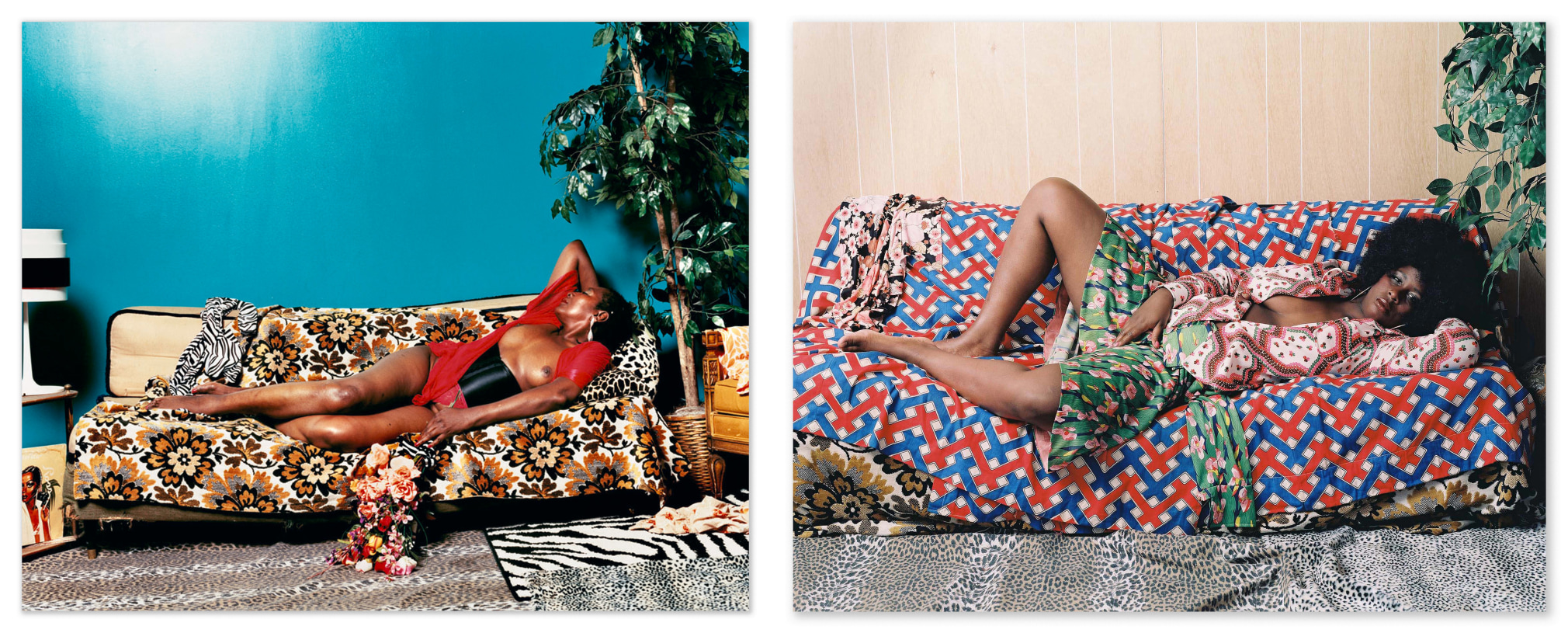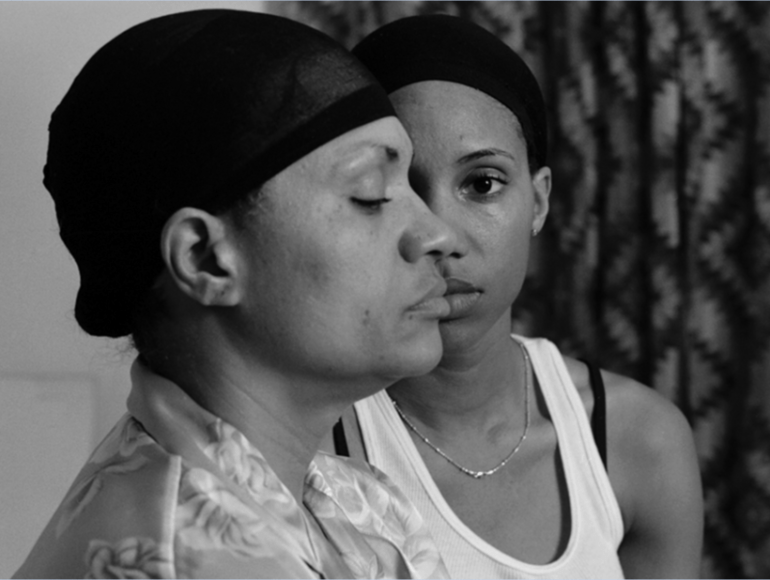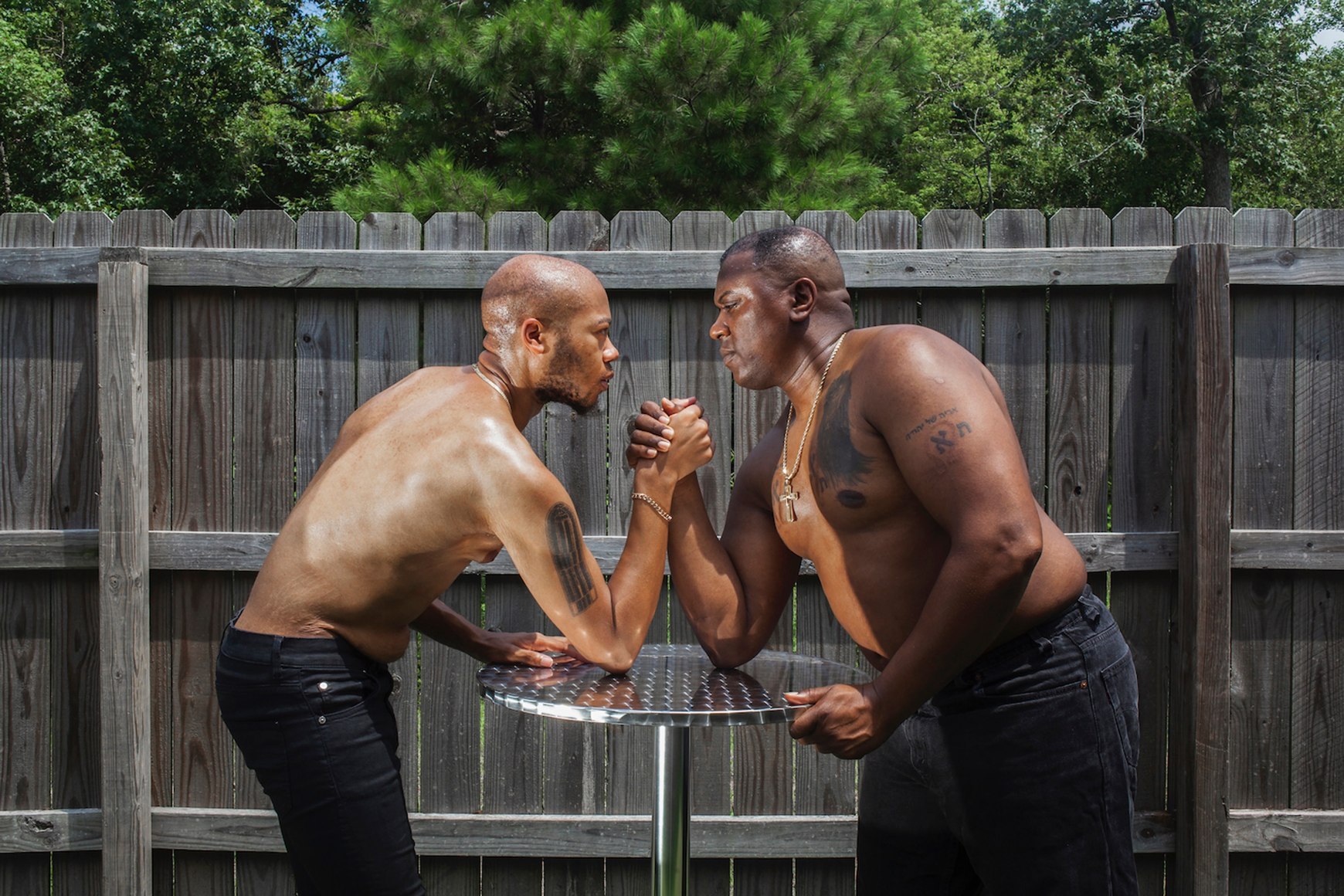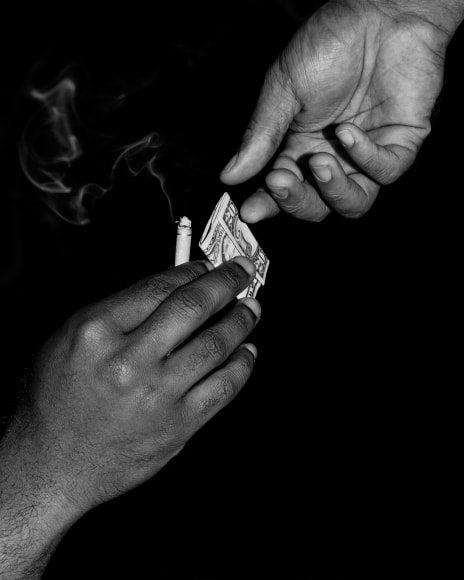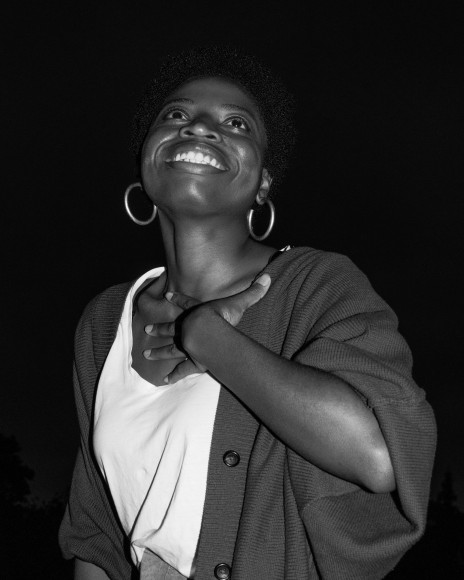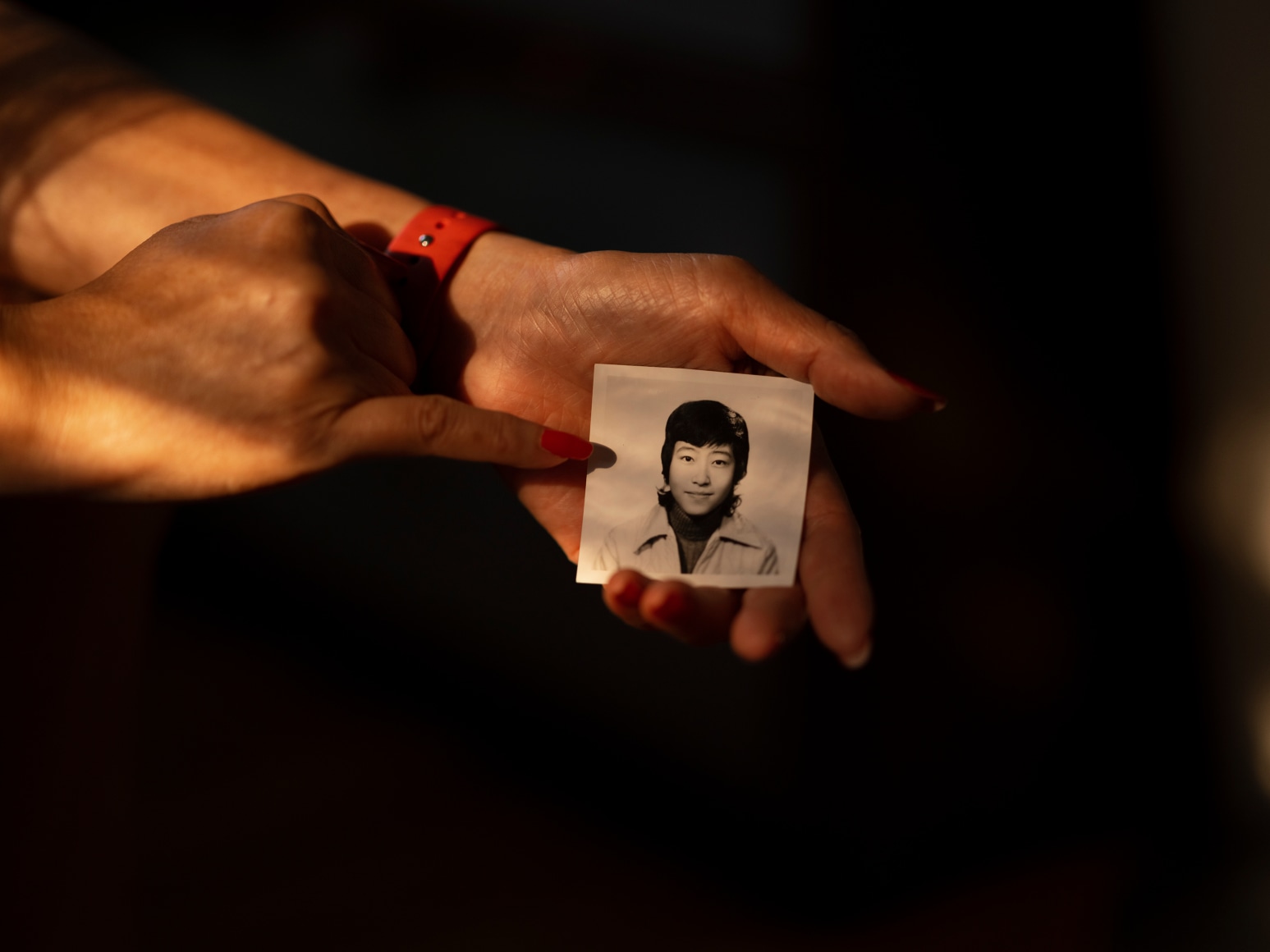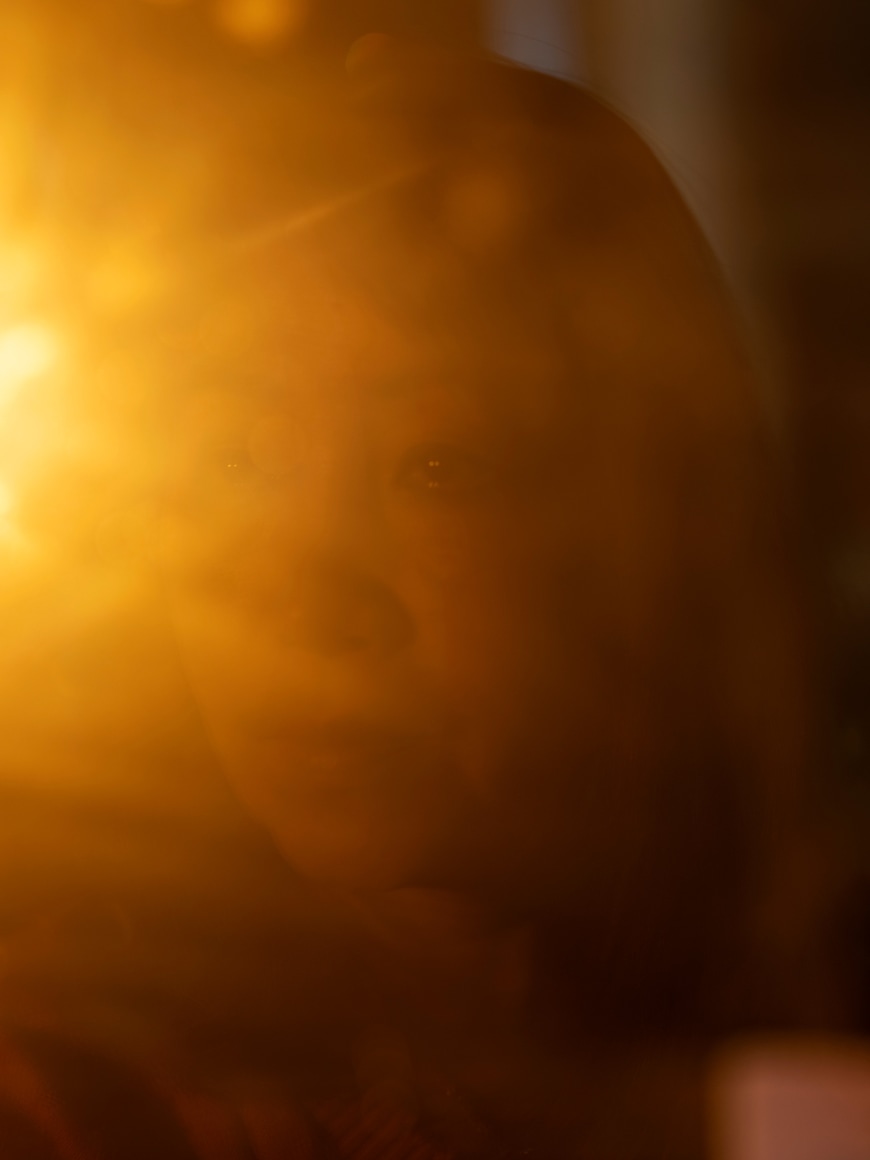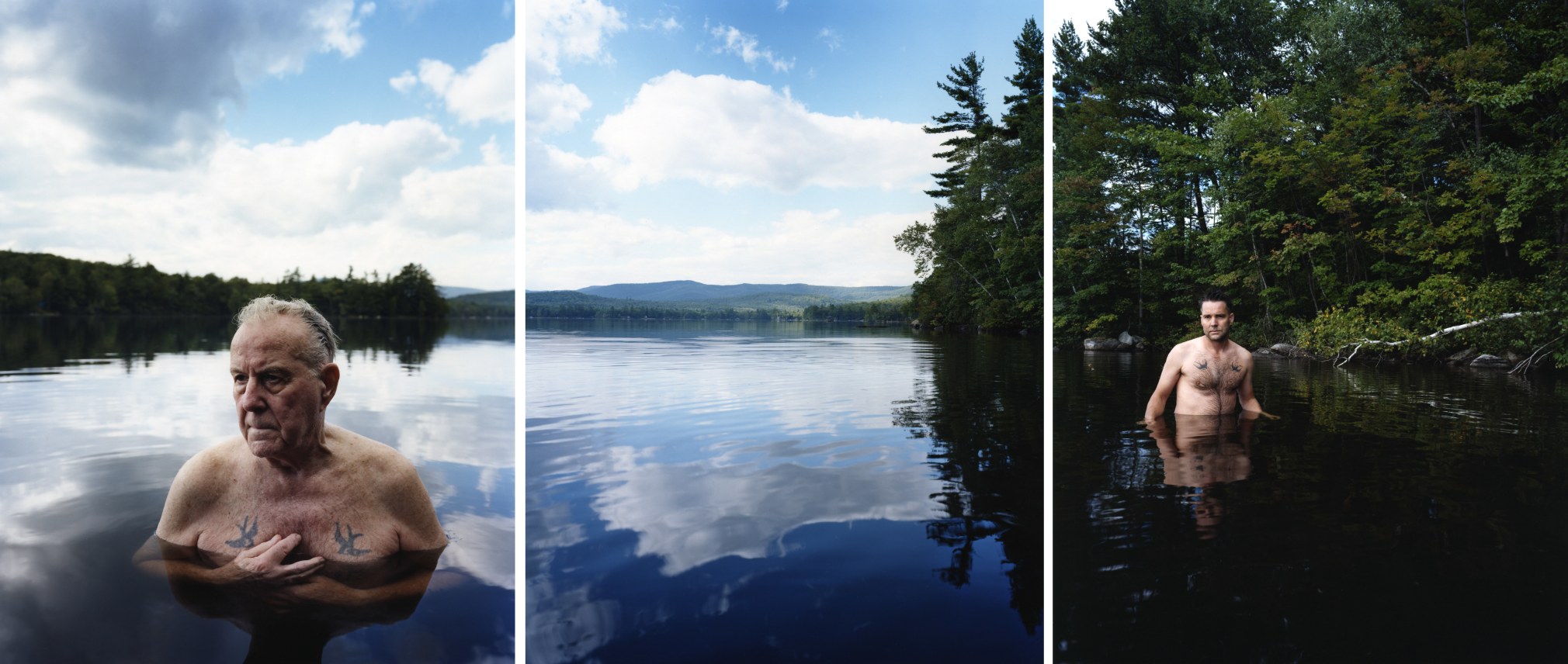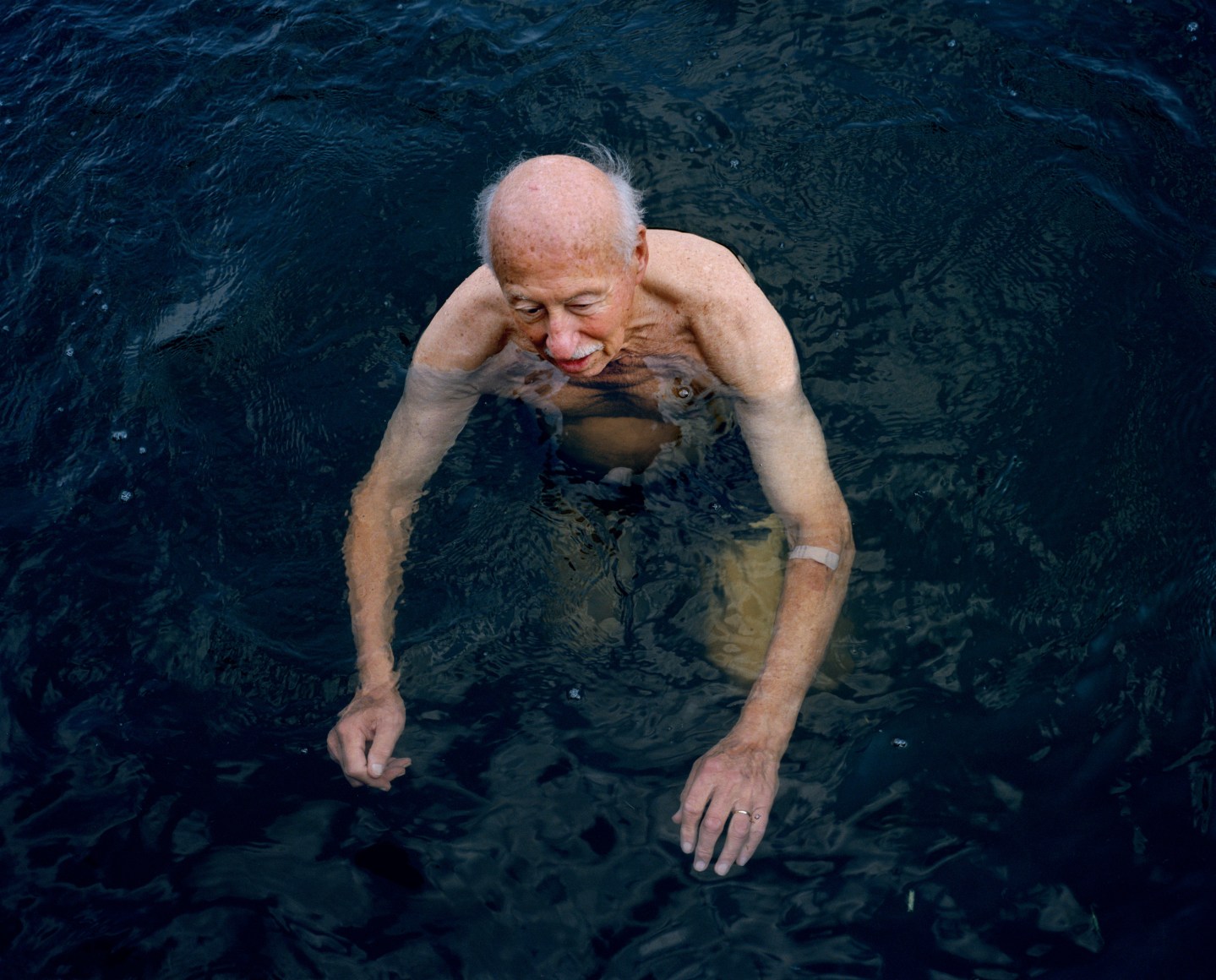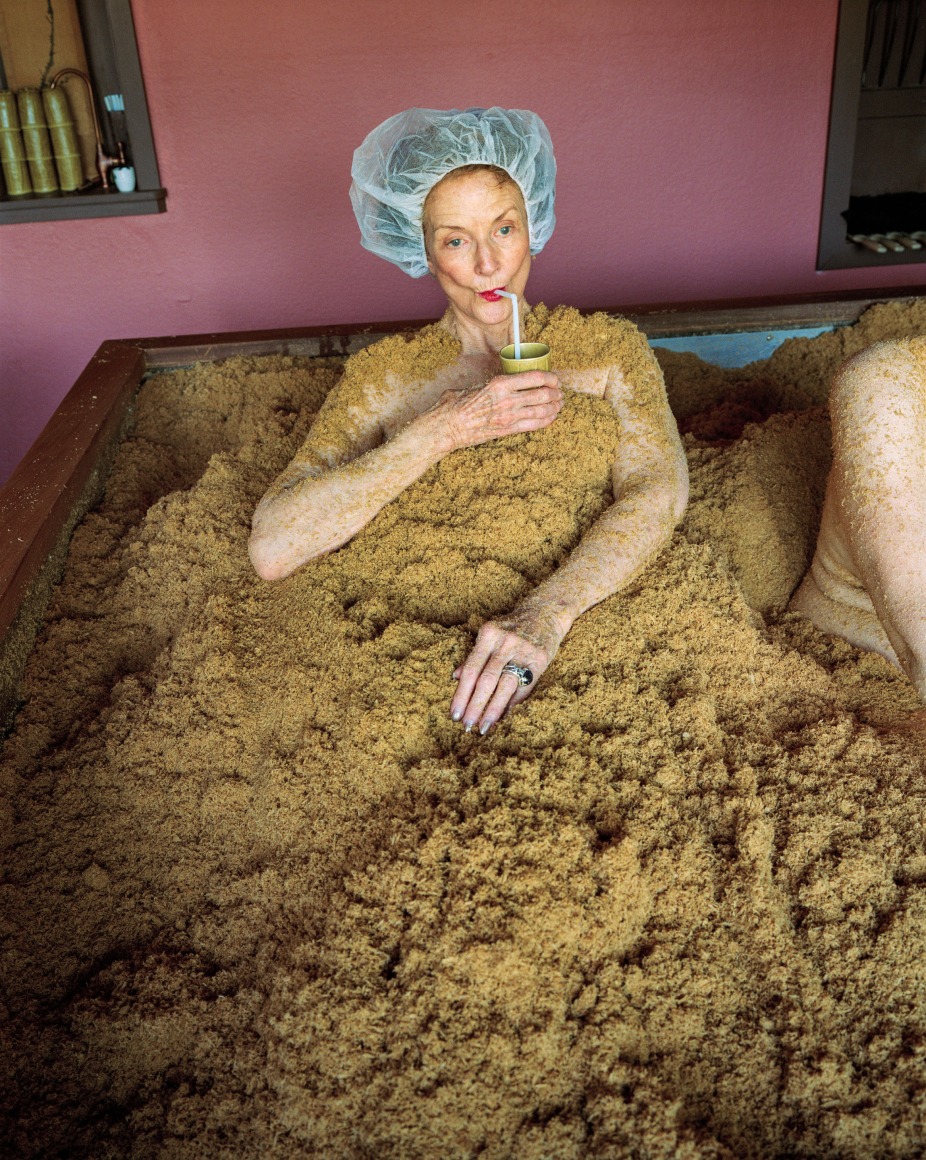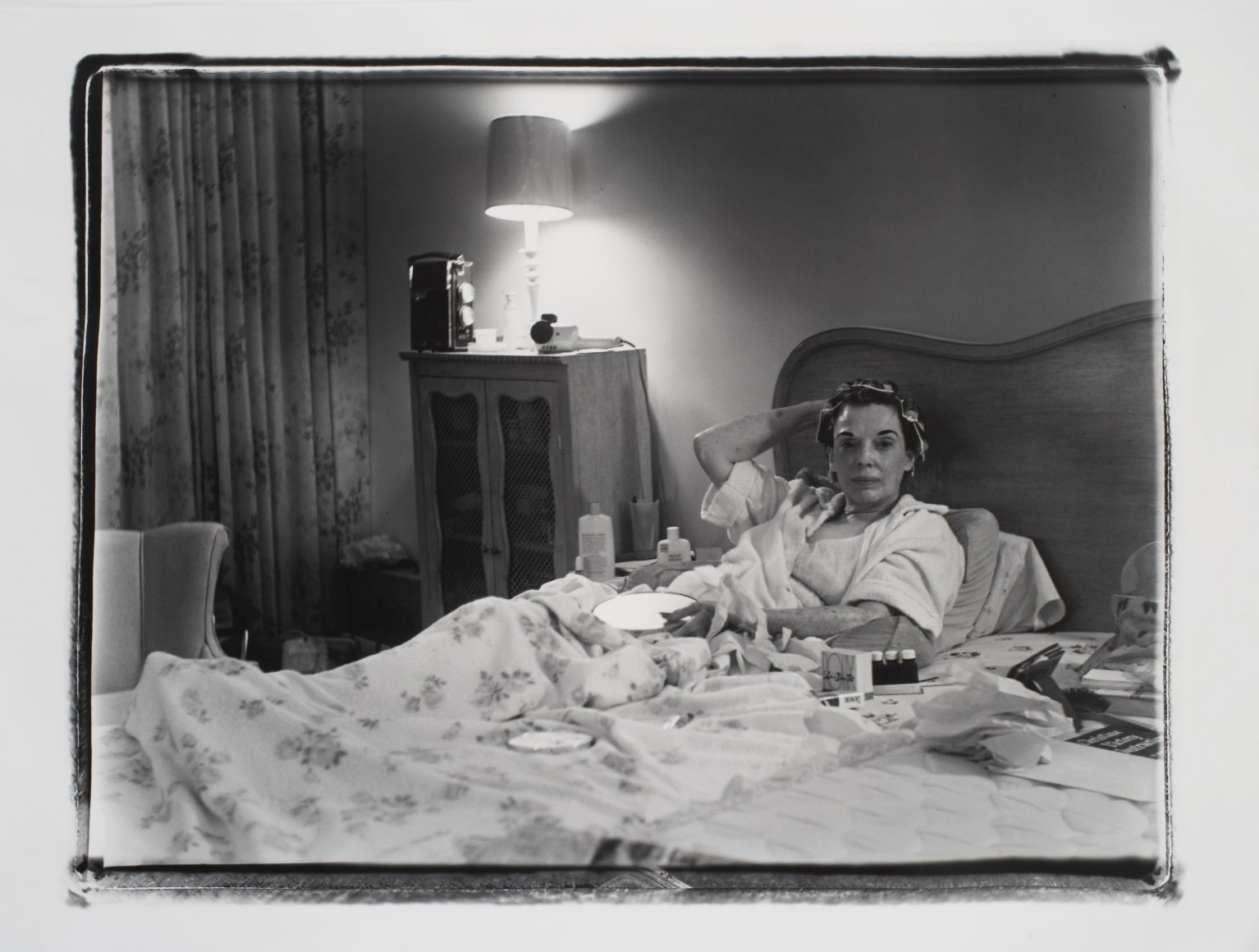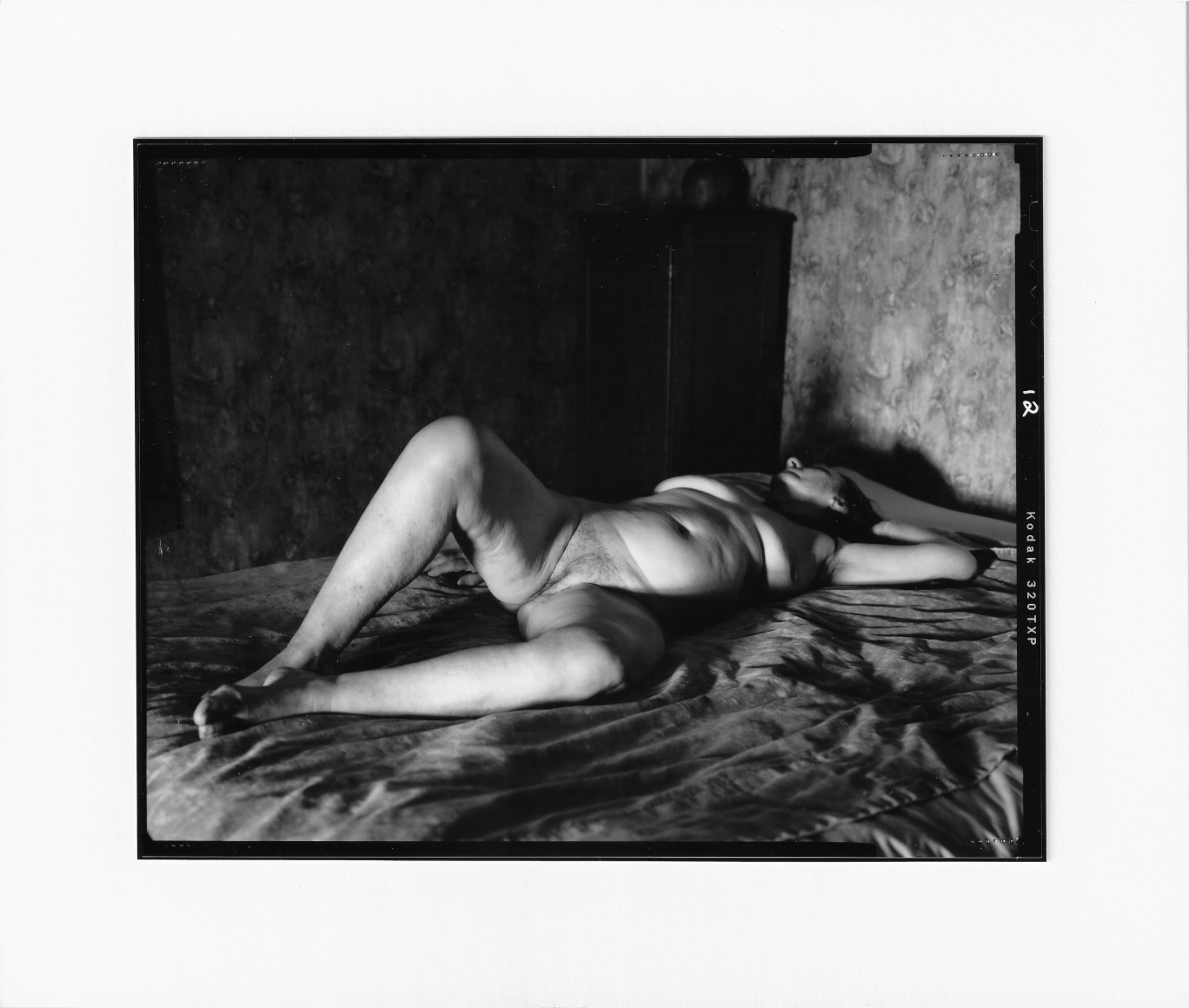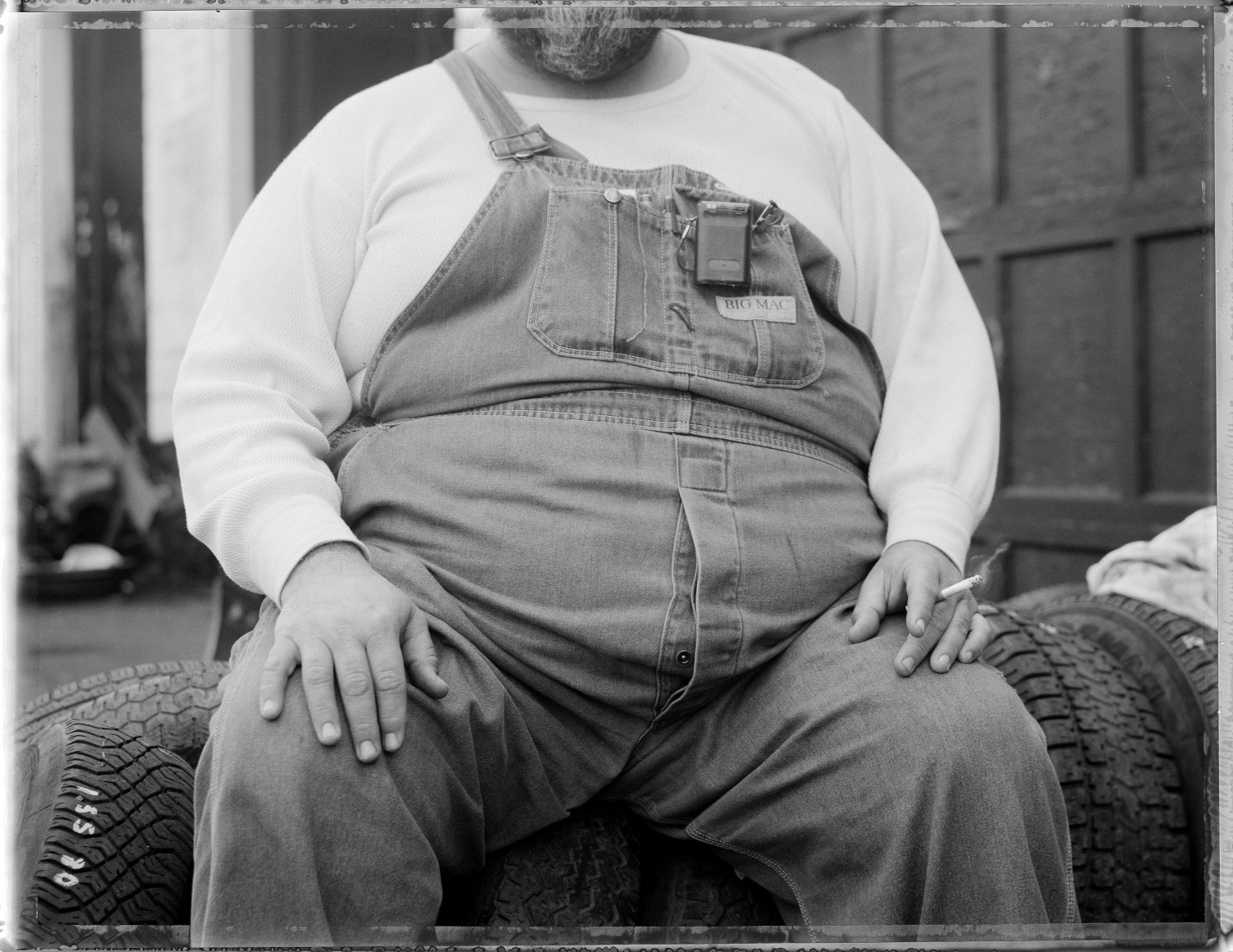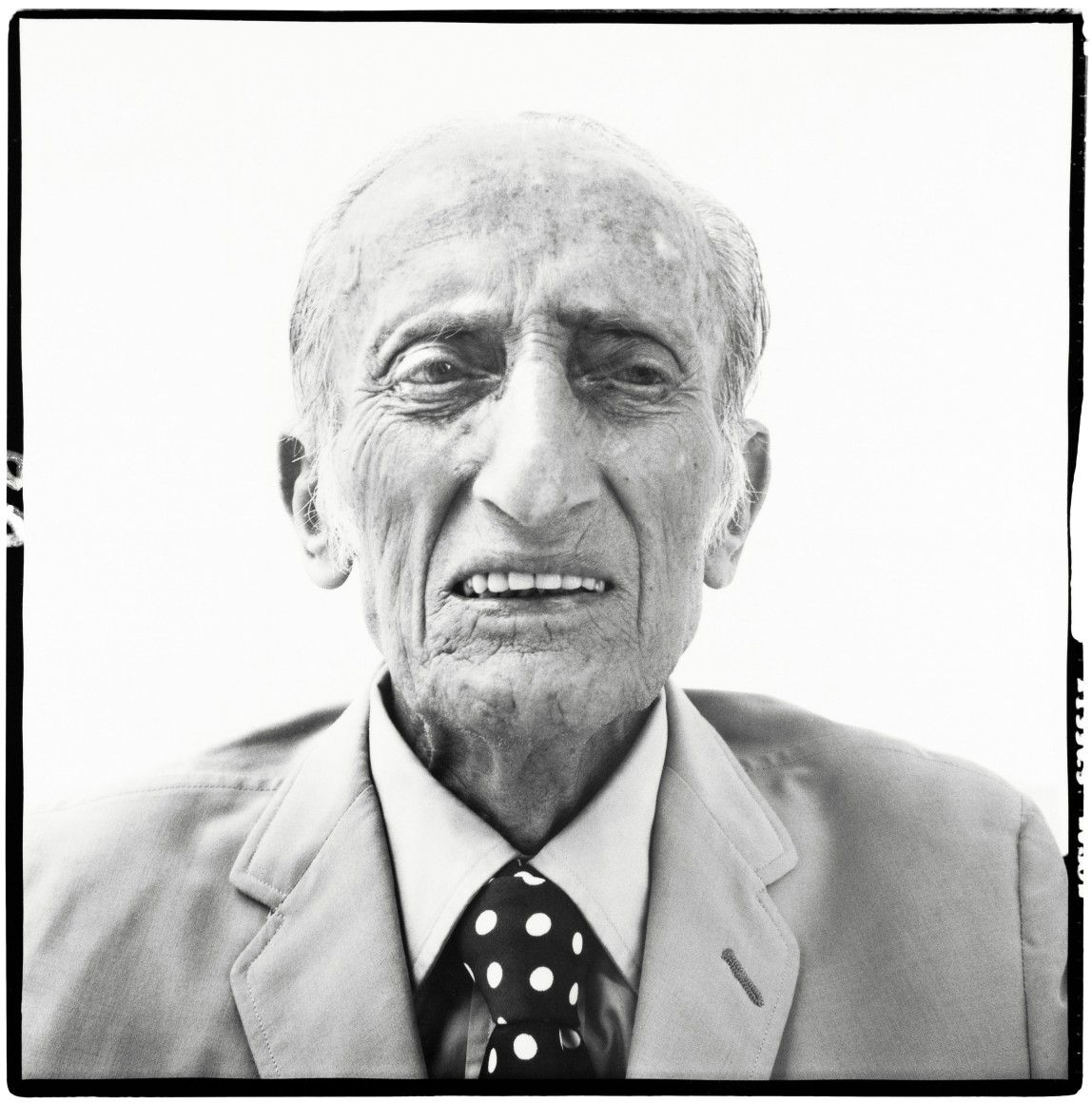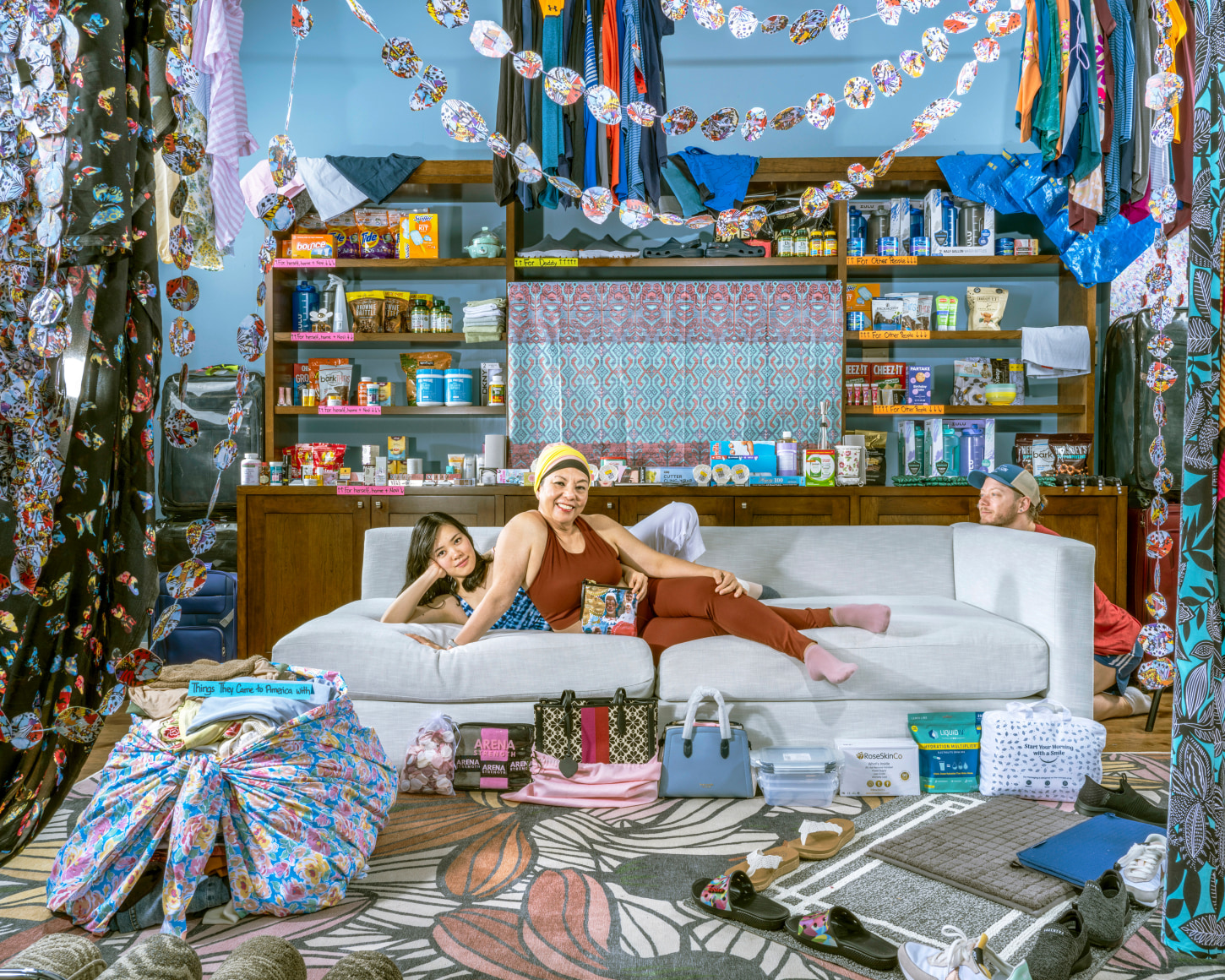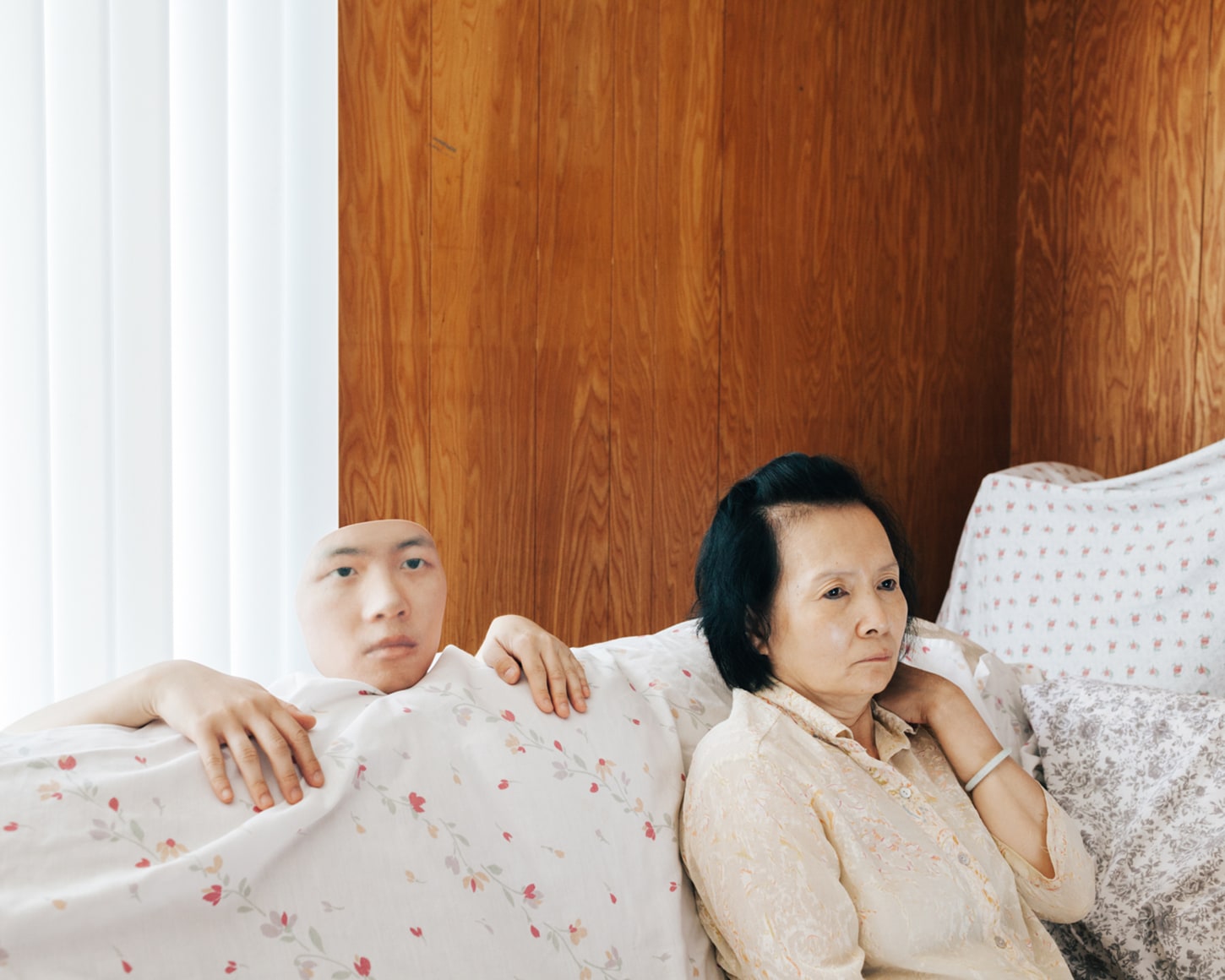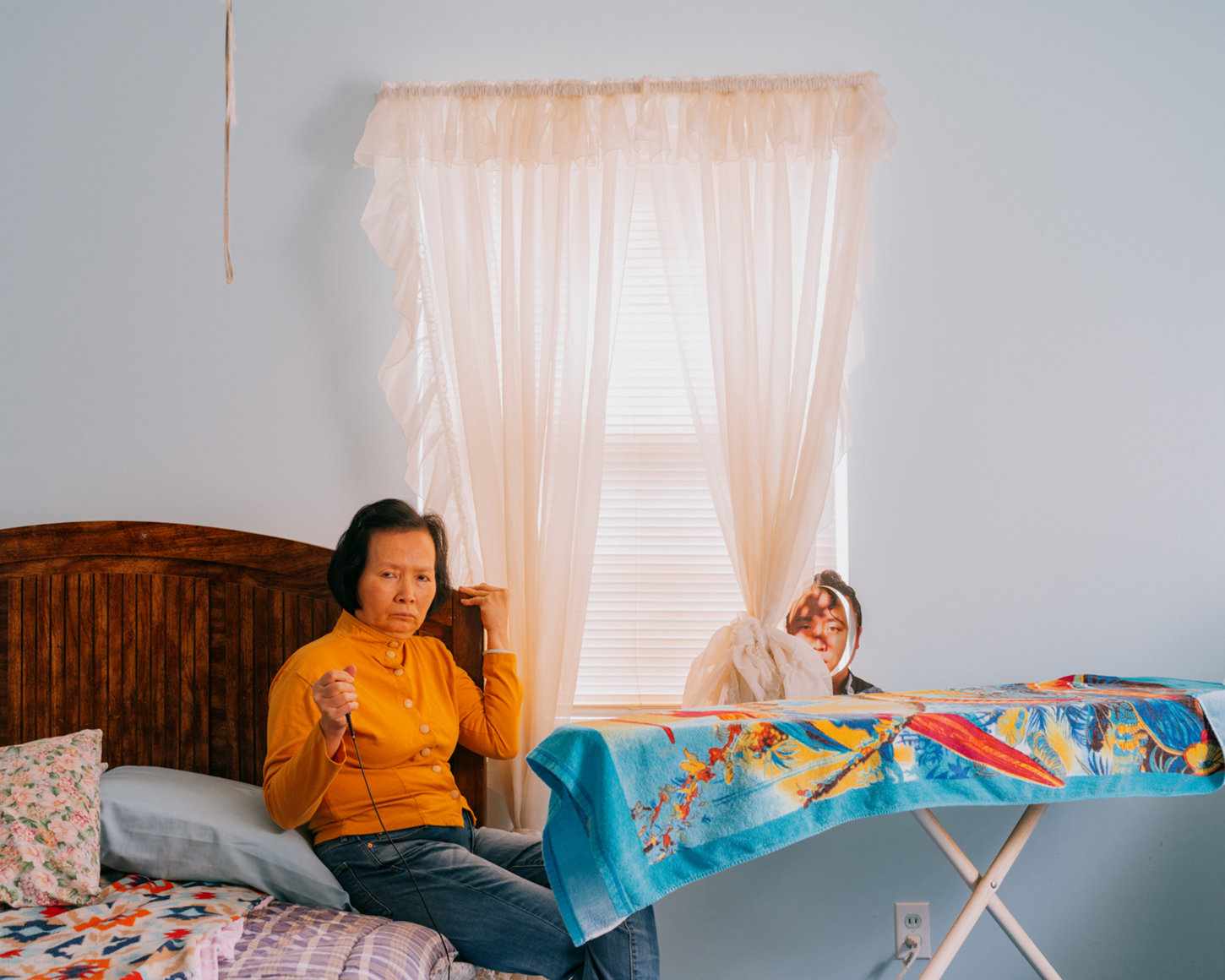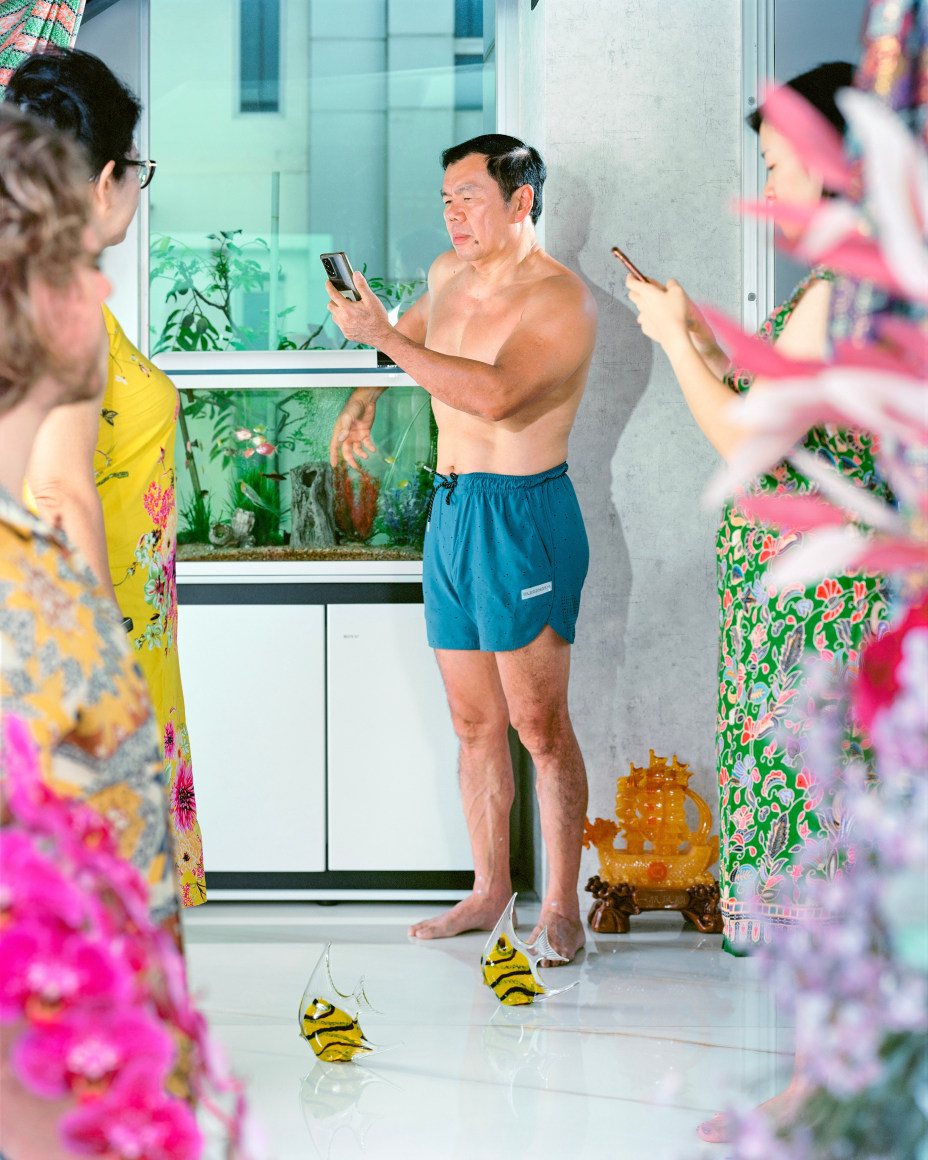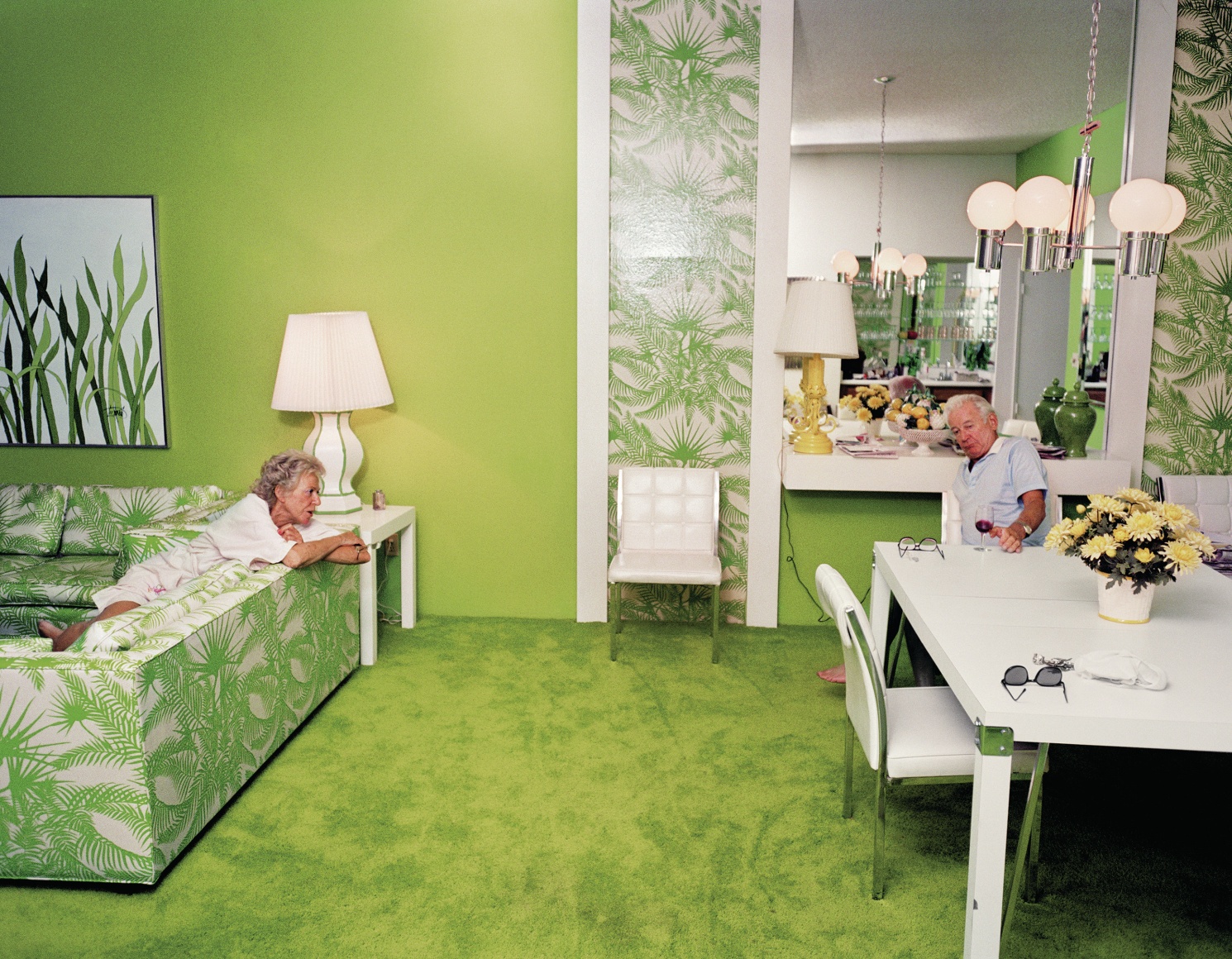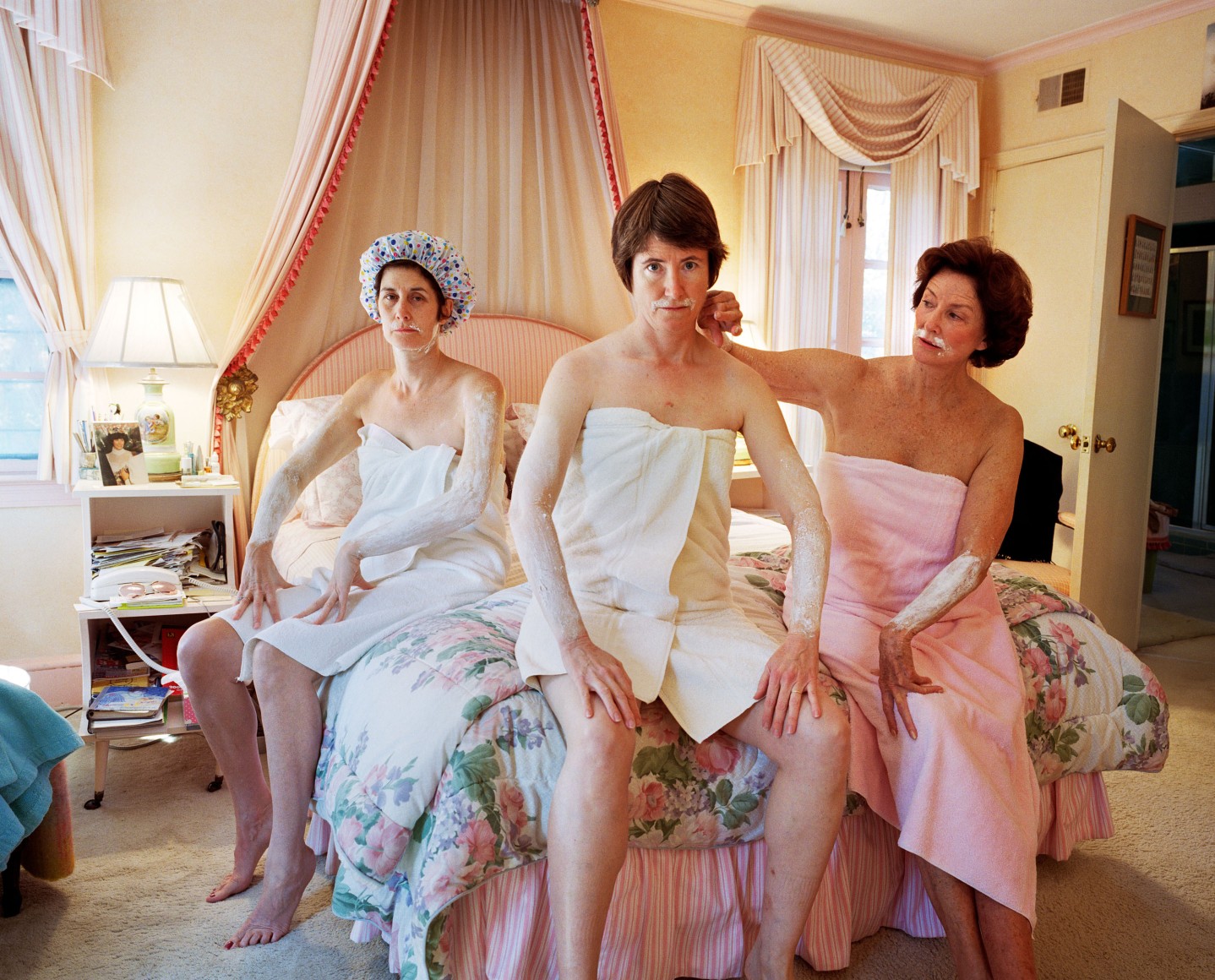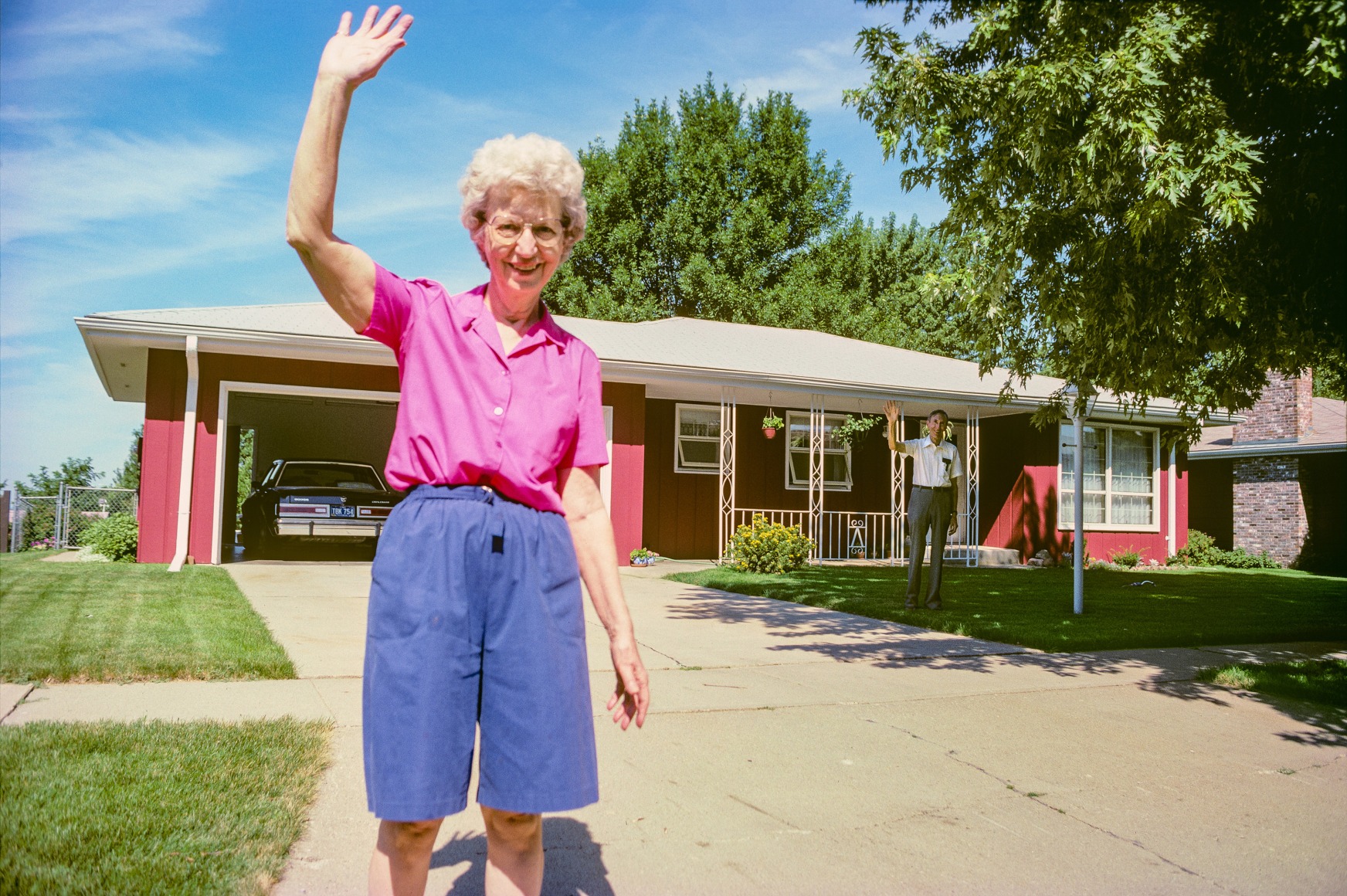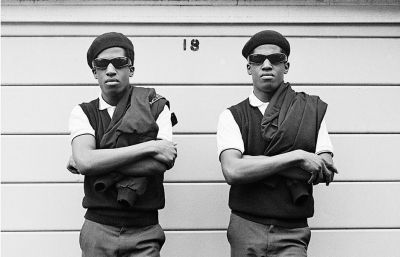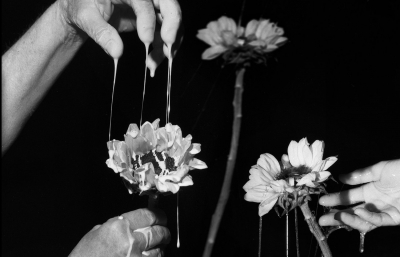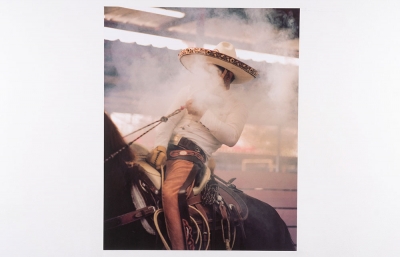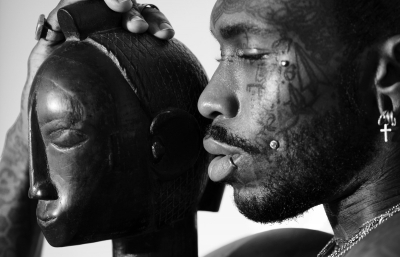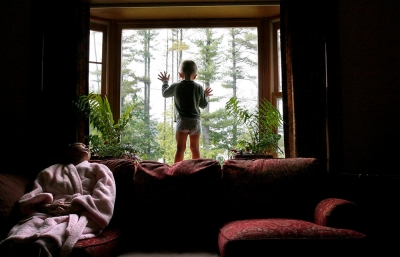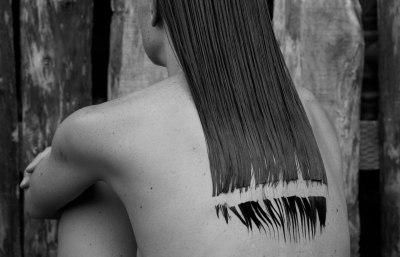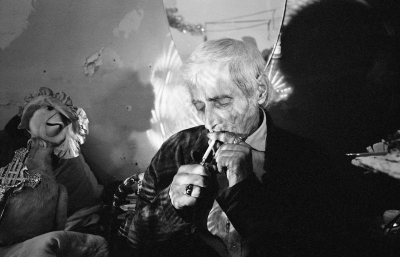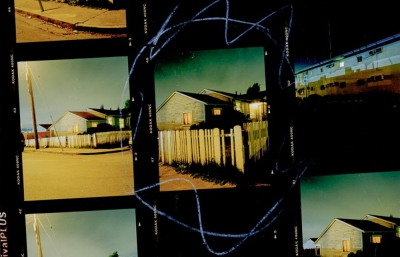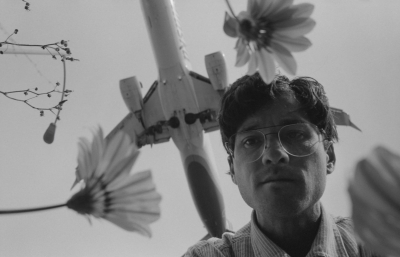Intimate Strangers is an exhibition at Yancey Richardson of powerful and highly personal photographs and video made by visual artists who have positioned a parent or parents as central subjects in a body of work.
The 17 artists featured in the exhibition include Richard Avedon, Deanna Dikeman, Jess T. Dugan, Mitch Epstein, LaToya Ruby Frazier, David Hilliard, Lisa Kereszi, Tommy Kha, Justine Kurland, Jarod Lew, Marilyn Minter, Zora J Murff, Sage Sohier, Leonard Suryajaya, Mickalene Thomas, D’Angelo Lovell Williams, and Larry Sultan.
Intentionally—and sometimes unintentionally—the images in Intimate Strangers reflect on diverse and relevant social issues, ranging from the pursuit of the American dream and stigmas around aging to LGBTQ+ concerns, as well as topics related to immigration, Black masculinity, and addiction.
For David Hilliard, Mickalene Thomas, D’Angelo Lovell Williams, and Leonard Suryajaya, photography is used as a means of bridging the relationship between a heterosexual, and sometimes estranged parent, and their queer adult child. For Tommy Kha and Jarod Lew, both children of immigrants, the process of making images assists in unraveling the story of a parent’s past whose previous life has been hidden. In Lew’s case, he discovered that his mother had been engaged to Vincent Chin when he was murdered in a historic anti-Asian hate crime.
With the work of Mitch Epstein, Larry Sultan, and Marilyn Minter, the artist looks through the photographic lens to grapple with the vulnerability of an aging or ill parent. Larry Sultan spent a decade photographing his parents, simultaneously exploring the nuances of their daily dynamics and the deception of family mythmaking. Mitch Epstein’s picture of his 82-year-old father, a local business leader in Holyoke, Massachusetts, whose family business collapsed in bankruptcy, also exposes the vulnerable side of his aging father by photographing him from above—bald, grey, and bandaged.
D’Angelo Lovell Williams and Zora J Murff both create images that examine Black masculinity and the power dynamics of fathers and children. In Daddy Issues, 2019, Williams photographs themself in an arm-wrestling contest with their father, on a rare visit together. In the image Gas Money, 2019, Murff shows a folded $20 bill being handed from one man to a younger one.
Marilyn Minter’s rarely seen black and white photographs of her mother were made in 1969 while she was a student in art school. When classmates first viewed the images, they reacted in shock exclaiming, “Oh my god. That’s your mother?!” She had not realized how intensely the images would resonate as her mother, a drug addict suffering from an anxiety disorder, lived in a nightgown, and rarely left the house. Minter did not show the work again until 1994.
The process of portraiture is often an act of collaboration, and in the case of many of the artists, their parents were active participants in the construction of fabricated scenes. From 1998 until his father’s death from COVID in 2020, David Hilliard created a series of quizzical, narrative tableaux featuring his heterosexual, blue-collar parent. As a queer artist son acknowledging his lineage, he replicated his father’s chest tattoo on his own body. The two men visually evoke one other in Hilliard’s father and son triptych, Rock Bottom, 2008.
While studying at Yale University with David Hillard in the early 2000s, Mickalene Thomas recalls Hillard saying, “You should photograph someone with whom you have a complex relationship.” Thomas’s choice of her mother as a muse marked a watershed moment, inspiring much of her concurrent and future work celebrating the beauty and sexuality of Black women. In the diptych Madame Mama Bush and Afro Goddess with Hands Between Legs, 2006/2008, Thomas pairs a photograph of her mother as a sensuous odalisque, bare-breasted and eyes closed, with a sexually charged self-portrait staring directly at the camera. Thomas’s mother passed away a few years after the images were made.
Sage Sohier’s mother was a professional model in her younger years and the mature woman depicted in her photographs still retains a glamour and grace from that time. In her series Witness to Beauty, Sohier recreates memories from childhood of her mother’s beauty routines, planned and performed in collaboration with an affectionate wry humor.
Leonard Suryajaya, a queer Chinese Indonesian artist, immigrated to the U.S. in 2006 to study theater. In his elaborately staged photographs featuring his parents, sister, and husband, the artist combines performance, installation, and photography in an absurd but affectionate montage, which both questions familial authority and asserts his identity. Dressing up and posing for the camera becomes an act of role-playing, providing a space for parents and their nonconformist children to relate.
The video Letter to My Father by the queer nonbinary artist Jess T. Dugan offers a platform for the artist to speak directly to their estranged father about the pain of non-acceptance. The work was presented last year in A Trillion Sunsets: A Century of Overload at the International Center of Photography (ICP) in New York.

